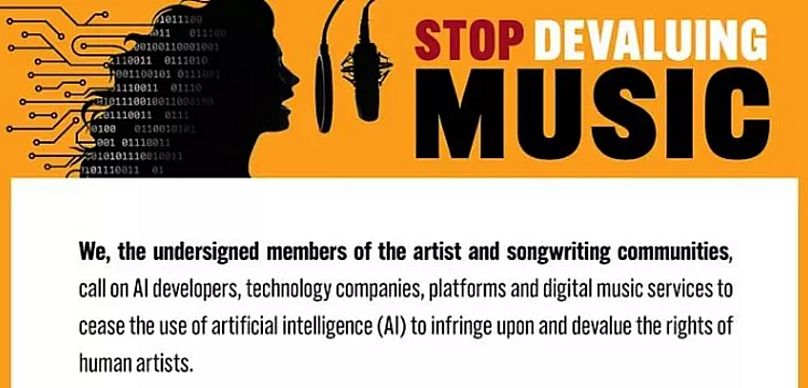Amidst backlash from a subtle revision in their terms of service that appeared to allow content uploaded to the platform to be utilized for training artificial intelligence, SoundCloud has revised its AI policy.
Futurism Previously, reports indicated that SoundCloud "discreetly" revised its terms and conditions in February 2024, stating that users who utilize the platform are "implicitly consenting" to allow their content to be employed for training artificial intelligence systems.
The policy stated: "By agreeing, you expressly consent to allowing your content to be utilized for informing, training, developing, or serving as an input to artificial intelligence technologies as part of delivering these services."
Users were naturally displeased, and as a result of the ensuing criticism, SoundCloud CEO Elijah Sethon has addressed the company's position on artificial intelligence and "the way content might engage with AI technologies within SoundCloud itself."
The letter, titled “ An Open Letter from Our CEO: Explaining Our Usage Policies states: "SoundCloud has never utilized artists' content to train AI models. This includes neither music creation nor large language models nor anything aimed at mimicking or replacing their work."
The statement also says: "We do not develop generative AI tools, nor do we permit third parties to scrape or utilize artist content from SoundCloud for their training."
Our stance is clear: AI ought to assist artists, rather than take their place.
Seton went on to elucidate that the modifications made to the Terms of Service in February aimed at clarifying "how we might utilize AI internally" to enhance SoundCloud for its audience. This includes improvements such as delivering more intelligent suggestions, refining searches, curating playlists, categorizing content, and implementing measures to thwart fraudulent activities.
Currently, SoundCloud has updated its Terms of Use to ensure that AI training will only be utilized on content uploaded to the platform when user permission is granted.
The updated policy states: "We will refrain from utilizing Your Content for training generative AI systems designed to mimic or reproduce your voice, music, or appearance unless you explicitly agree by positively opting into such usage."
Today, the Data (Usage and Access) Bill is up for review again in the UK House of Lords with the aim to tackle how the government's push to develop a British artificial intelligence sector might permit tech firms to bypass copyright regulations and utilize creative material for training their systems—without obtaining consent from the original creators.
Chi Onwurah, the chair of the cross-party committee, has previously urged the government to bring forward the AI safety bill.
Onwurah stated to The Guardian, "It is utterly essential for the government to demonstrate that they stand with the public regarding technology, especially concerning the tech platforms and how these technologies will affect their daily lives."
This coincides with a period when artists have been addressing the issue of firms taking advantage of protected material And cautioning against "exploitative" uses of AI in music.
Early this year, over 200 musicians took part in an event like this. an open letter submitted by the nonprofit organization called the Artist Rights Alliance , urging artificial intelligence technology corporations, developers, platforms, and digital music services to cease utilizing AI “to violate and undermine the rights of human artists.”
The list included Stevie Wonder, Robert Smith, Billie Eilish, Nicki Minaj, R.E.M., Peter Frampton, Jon Batiste, Katy Perry, Sheryl Crow, Smokey Robinson, as well as the representatives of Bob Marley’s and Frank Sinatra’s estates.
The correspondence acknowledged the innovative potential of emerging AI technology but also highlighted several threats it poses to human creativity. These issues encompass utilizing copyrighted works to train AI systems—without proper authorization—with the aim of supplanting artists, consequently leading to "a significant reduction in royalties distributed to creators."
The letter read: "Let there be no doubt: we hold the view that, when utilized responsibly, artificial intelligence holds significant promise to enhance human innovation and foster novel opportunities for music enthusiasts across the globe. However, certain platforms and creators are misusing AI technology to hinder creative efforts and diminish the work of artists, composers, performers, and copyright holders. If not handled carefully, AI can present substantial risks to safeguarding our personal information, maintaining our individuality, protecting our musical works, and sustaining our professional lives."

Post a Comment